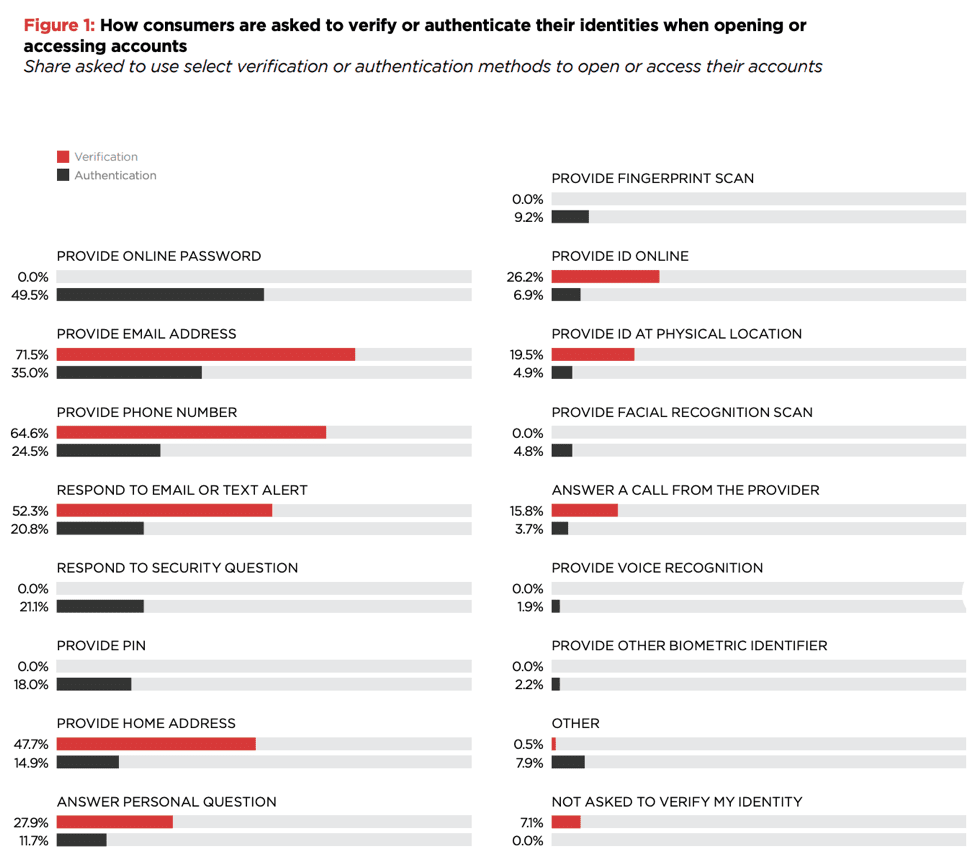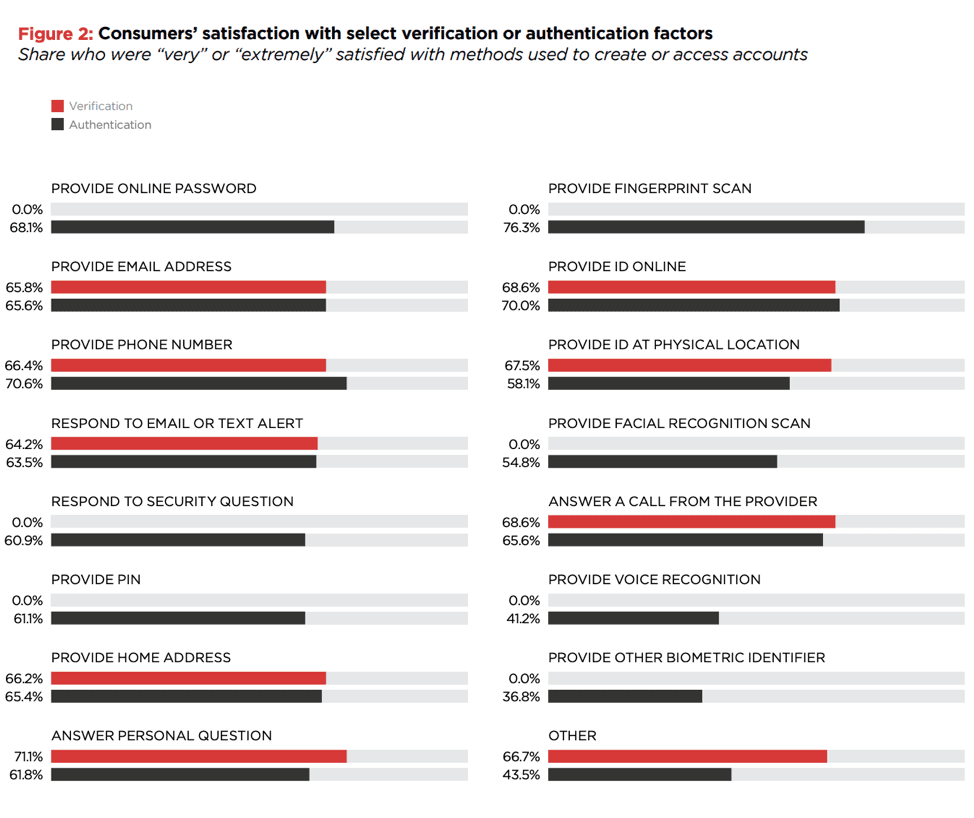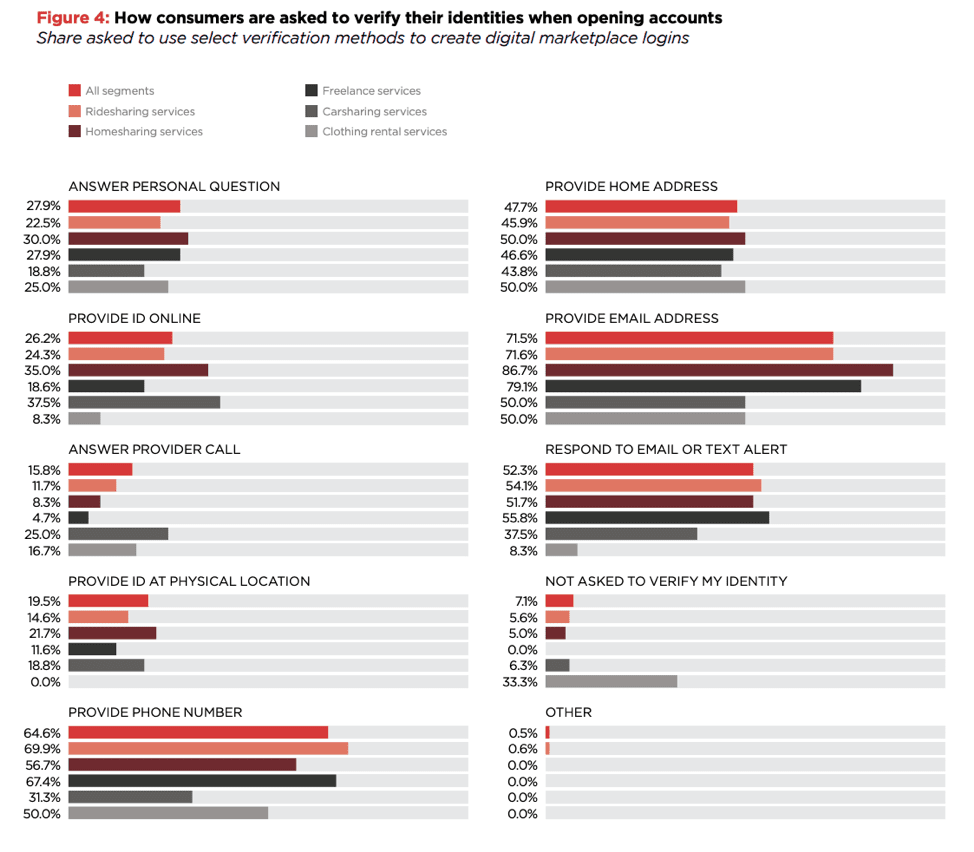Consumers Not Averse To ‘Positive Friction’ In Sharing Economy Platforms

Sharing economy platforms have become a force to be reckoned with. Overall, roughly 111 million consumers use some type of sharing economy platform to make their lives easier.
Where consumers gather, though, so do fraudsters.
According to PYMNTS’ new Who Are You? Verifying Digital Identity In The Sharing Economy Report, based on a survey of American sharing economy participants, in the rush to onboard new users, making the customer experience more simple could be making security more vulnerable.
This is a critical issue to solve, since the sharing economy was founded on trust. In order to grow, users need to feel secure about the people they do business with.
When signing up for new digital economy platform accounts, just 26.2 percent of sharing economy platforms require new users to verify their identities by submitting identification documents online, and even fewer require them to provide these documents in person at physical locations (19.5 percent).
The most common forms of verification are providing an email address (71.5 percent), providing a phone number (64.6 percent) or responding to a text or email alert (52.3 percent).

Similar information was requested when users logged back into their created accounts. Email addresses are required by 35 percent of platforms, 24.5 percent ask for phone numbers and 20.8 use one-time email or text alerts for authentication.
Many sharing economy platforms try to keep their barriers of entry low to improve conversions at sign-up and prevent user abandonment. Using email addresses and passwords is extremely common, but it’s not terribly secure.
Some companies like Microsoft and Fujitsu are exploring new solutions such as artificial intelligence (AI), biometrics and blockchain, and would like to see the email and password system disappear altogether.
Recently, Microsoft‘s Chief Information Security Officer (CISO) Bret Arsenault said that essentially, passwords are useless. “We all sort of declared years ago that identity would be our new perimeter. People are very focused on taking advantage of identity, it’s become a classic: Hackers don’t break in, they log in.”
According to the PYMNTS study, much of the fear about adding friction to signing up and logging in isn’t completely based in reality. Consumers are less averse to being asked for identity credentials than some might think. There is even a name for this, “positive friction,” which builds trust and assures consumers about the safety of a digital platform.
A majority (68.6 percent) of users who are asked to verify their identities by providing identification documents online report being “very” or “extremely” satisfied with their sharing platforms’ sign-up processes, as do 67.5 percent of those asked to present physical identification documents in person at brick-and-mortar locations.

Verifying identities by providing email addresses, phone numbers or home addresses had slightly lower rates of satisfaction compared to methods that asked more of a user.
Of course, it’s hard to generalize. Different types of platforms ask for different information and satisfaction levels vary.
Users of homesharing and carsharing platforms are among the most likely to say they verified their identities by providing digital identification documents at 35 percent and 37.5 percent, respectively. This compares to the 26.2 percent of all surveyed platform users who are asked to present digital documentation.

Roughly three-fourths (76.2 percent) of consumers using homesharing services were “very” or “extremely” satisfied with providing digital identification, while 63.9 percent shared the same sentiment for signing up for ridesharing services.
Interestingly, 100 percent of users creating clothing rental services accounts were “very” or “extremely” satisfied with providing digital identification. It appears that clothing rental and homesharing might be considered higher stakes, and users expect some degree of friction when signing up.
Those providing access to high-value assets like homes or automobiles understandably implement stronger, documentation-based user verification systems to help protect their users and stakeholders.
